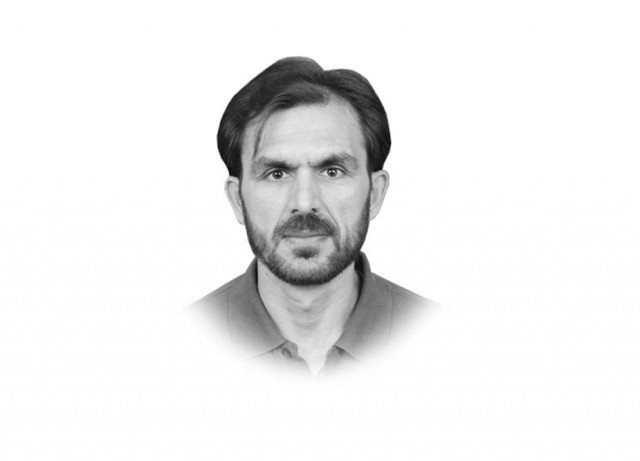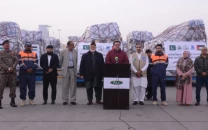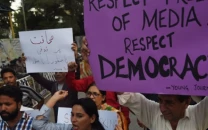Losing war against polio to ‘counter-insurgency’
Trends in Waziristan, Khyber regions mean that the dream of polio-free Pakistan is unlikely to materialise in 2012.

In North Waziristan, tribesmen boycotted a recent nationwide immunisation campaign after the government failed to accede to their demand for a cessation of US drone strikes in the region. This was not unexpected, though. The tribesmen could not defy a ban on polio vaccination from the powerful local Taliban, led by commander Hafiz Gul Bahadur. The Taliban believe that US spooks masquerading as polio staff wanted to sneak in to trawl for potential drone targets in the region. Perhaps, their suspicion stems from the Dr Shakil Afridi episode. Gul Bahadur is harbouring the Haqqani network, which US officials believe is using the Waziristan region as a launch pad for attacks on Nato forces in neighbouring Afghanistan.
In South Waziristan, Gul Bahadur’s henchman followed suit. Taking cue from his mentor, commander Maulvi Nazir set the same condition: cease predator attacks and we will lift the polio ban. Government forces have carried out a string of operations in South Waziristan, the last one being in 2009, but their target had been the Tehreek-e-Taliban Pakistan of Hakimullah Mehsud, the arch-nemesis of Maulvi Nazir. The regions under the control of the Bahadur-Nazir duo were spared because they have had a truce with the authorities since 2007.
The US drone campaign has zeroed in on the Wazirstan region, both North and South. In all, 300-plus attacks took place in Pakistan since 2004, according to a Long Wall Journal tally. Of them, 95 per cent were carried out in the Waziristan region. The local Taliban have a point to make: polio kills one in hundreds of thousands of children, while predators kill tribal children wantonly. The Obama Administration does admit “collateral damage” in drone strikes “targeted at al Qaeda and their tribal cohorts” — but it believes that the civilian casualties cited by detractors of this no-more-covert war are inflated. Convinced of its effectiveness, the Obama Administration is fixated on the drone campaign and is unlikely to call it off. And this may risk the health of over 200,000 children in the Waziristan region.
In Khyber Agency, the dilemma is different: accessibility. Landikotal and Jamrud tehsils are relatively peaceful and thus accessible to polio staff, but Bara tehsil, particularly its remote Tirah Valley, is not. Tirah is the last bastion of Mangal Bagh Afridi, the commander of the Lashkar-e-Islam extremist group, who once virtually ruled the whole of Bara. Sporadic fighting between government forces and Lashkar fighters means over 100,000 children under five years of age will miss the vital drops.
Last year was the worst for Pakistan in a decade, as 198 polio cases were reported due to a myriad of inoculation problems caused by a negative perception of the vaccine. Since then, the government has involved religious leaders and local clerics to improve immunisation. However, the trends in the Waziristan and Khyber regions mean that the dream of a polio-free Pakistan is unlikely to materialise in 2012. And if that doesn’t happen next year, we, Pakistanis, could face travel restrictions from the international community.
Published in The Express Tribune, July 31st, 2012.


















COMMENTS
Comments are moderated and generally will be posted if they are on-topic and not abusive.
For more information, please see our Comments FAQ